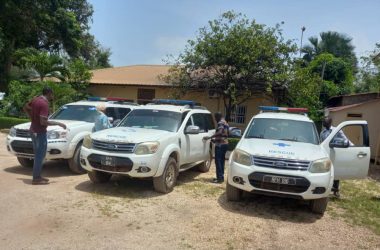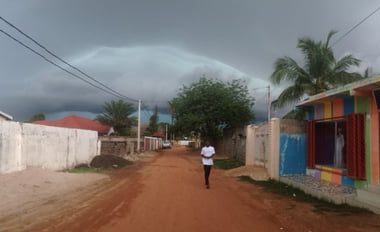 As strong and energetic young Africans continue to perish in the high seas in an attempt to enter Europe and elsewhere in the world in search for greener pasture, Gambians youths have formed a Youth Empowerment Project (YEP)-The Gambia to campaign against youth irregular migration.
As strong and energetic young Africans continue to perish in the high seas in an attempt to enter Europe and elsewhere in the world in search for greener pasture, Gambians youths have formed a Youth Empowerment Project (YEP)-The Gambia to campaign against youth irregular migration.
The organisation Thursday hold a day symposium on youth irregular migration and entrepreneurship in Banjulinding, some 25 kilometres from Gambia’s capital, Banjul.
The paradox is that international law supports the right to leave a country but not the right to enter another illegally. There is an increased likelihood of not fully documenting all refugees and stateless persons who arrives in Italy and other countries and those who go through irregular channels are more likely to be at risk of harassment, abuse, and exploitation.
YEP operations manager Sirreh Darboe said they established the organisation to help address the problems of youth unemployment, saying young people account for 64% of the Gambian population.
He added: “It is important to us for young people to be empowered and supported to venture into life skills and other engagement that can give them productive future. If young people are given support, it will be surprising the changes that would bring to national development.”
Youth activist Lamin Jammeh said irregular migration is a national concern hence it has led to the loss of many young peoples’ lives.
He said a majority of the young people who take the high sea ventures could not travel through the right way because of the costliness of visas.
“It is everyone’s’ right to travel but it must be done in a legal way,” he said.
An International Organisation for Migration ((IOM) report indicates that a significant number of people who attempted to cross from Libya to Italy and elsewhere in the world had died in the waters.
The global migration agency also reported that that from January 2017, 2850 Gambians had entered Libya with majority of them children but reports also indicated that the rate of entry is reducing. In 2017, 1987 Gambians including 33 female returned from Libya and Niger and 41 unaccompanied children returned from Libya. 
Mr. Jammeh said some young people died in the sea and others in cells, saying 7500 Gambians arrived had in Libya between January and August 2016.
Musa Sidibeh, an irregular migrant from Makumbaya, a small village of some 30 kilometres from capital Banjul narrated tales of torture, arbitrary arrest and hunger while n Libyan cells. “I went to school up to Grade 9 but my parents could no longer afford my school fees. Then I ventured into driving until I acquire my driving licence.”
Mr. Sidibeh explained that he later travelled to Libya and had a labouring job in Tripoli where he worked and earned some money equivalent to D35, 000 Gambian.
“I paid the money to a Libyan man to help me cross into Italy but since the day I gave him the money, I never saw him again. I return to The Gambia with complete life discouragement,” he said.
He reminded young people that one situation cannot last and that they must struggle to change their own lives and that of others.
Speaker of the National Youth Parliament, Kawsu Badjie, said there are several opportunities available for Gambian young people to explore but said every intending traveller has an aim to accomplish.




